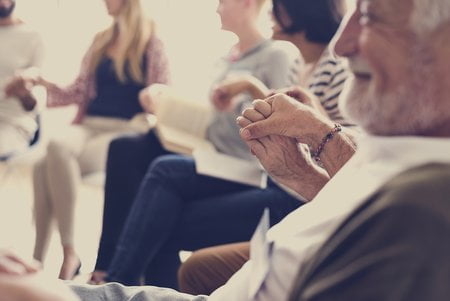Individual Therapy & One-on-One Sessions in Addiction Recovery
Although many aspects of addiction recovery focus on individual therapy and one-on-one sessions, group therapy also plays a critical role in treatment. Most patients in an addiction recovery program will go to a process group as part of their healing. This is a type of group therapy that relies on the interactions between patients and therapists to be effective.

In a process group patients will be able to talk about their struggles and receive feedback, encouragement, support and different perspectives from other people in the group. These group meetings are usually unstructured but they may focus on a certain theme or be catered toward specific people. Members of the group can bring up any topic that they feel is important to them and pertinent to the process group.
Building Trust in the Early Stages
In the early meetings of the group, patients will need to start establishing trust with each other so they feel comfortable sharing personal stories. Building this trust takes time, as individuals may initially feel hesitant to open up about their struggles. However, as the group dynamic strengthens, members can begin to express their thoughts and emotions more freely. Everyone in the group needs to be able to communicate openly and honestly with one another in order for the process to work effectively. Creating a safe and non-judgmental space allows participants to feel validated and understood, fostering a sense of community and support. When people feel comfortable sharing, they can start to open up, form meaningful connections, and genuinely care about each other’s progress and well-being.
The Healing and Challenges of Process Groups
Process groups can be deeply healing but also highly revealing, as those in the group may start to exhibit some of the interpersonal struggles that contributed to their addiction. These challenges may include difficulties with trust, communication, emotional regulation, or setting boundaries. The therapist plays a crucial role in identifying these patterns and helping guide the members toward healthier relationship skills. By addressing these issues within the group setting, participants have the opportunity to practice new ways of interacting in a supportive environment.
Personal Growth Through Group Feedback
Through the feedback they receive in group discussions, individuals can develop greater self-awareness and recognize patterns in their thoughts and behaviors. Honest and constructive input from peers can encourage personal growth and foster positive changes in how members navigate relationships outside of the group. Over time, this process helps participants not only in their recovery journey but also in developing healthier relationships, better communication skills, and an improved sense of self-worth.
For people with addictions, their connection and relationship to others can help determine whether they are able to stay sober. Process groups help prepare them to connect and relate well to others in order to help them in their future. Join a supportive process group today and take a step toward lasting recovery.
